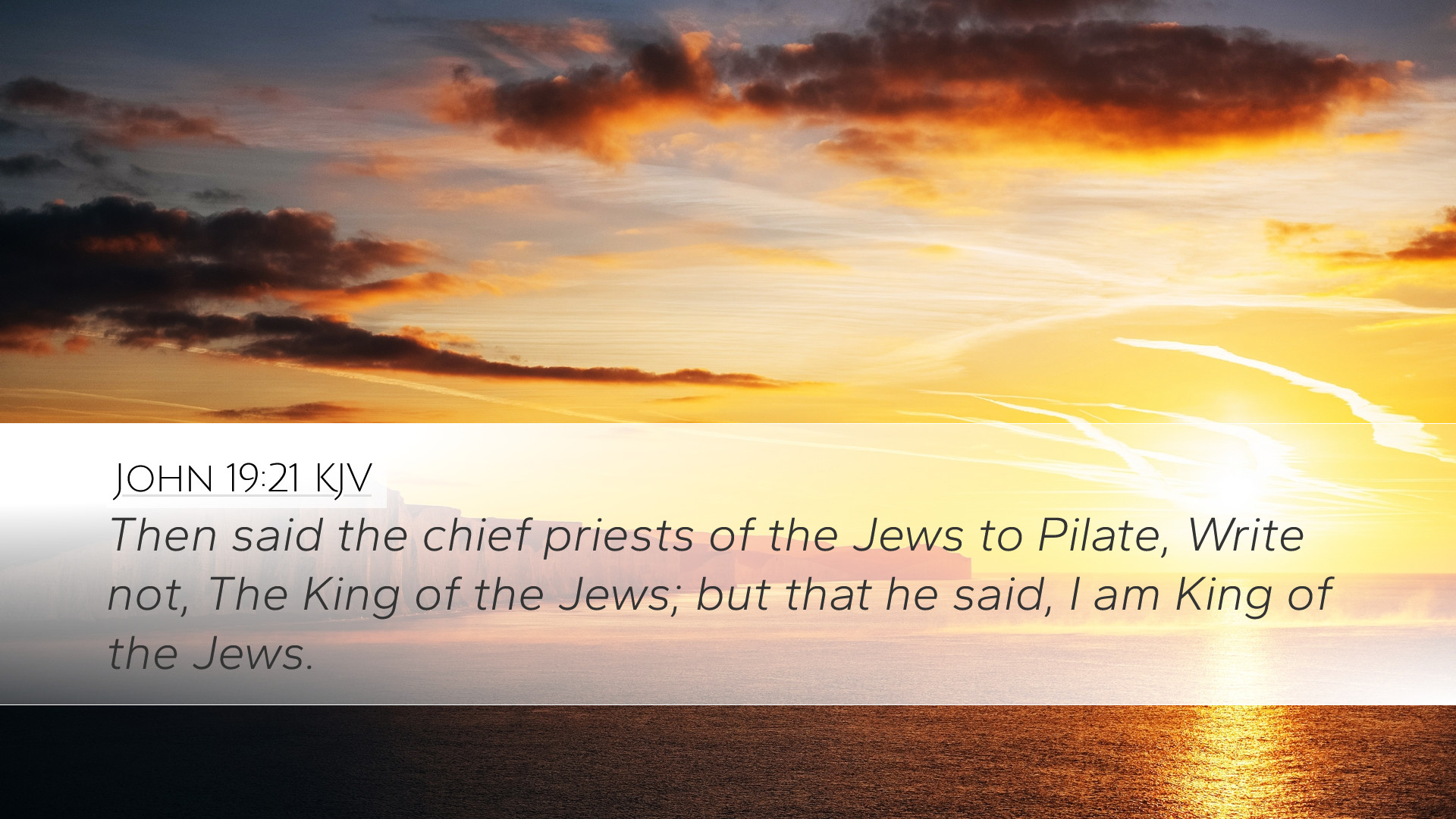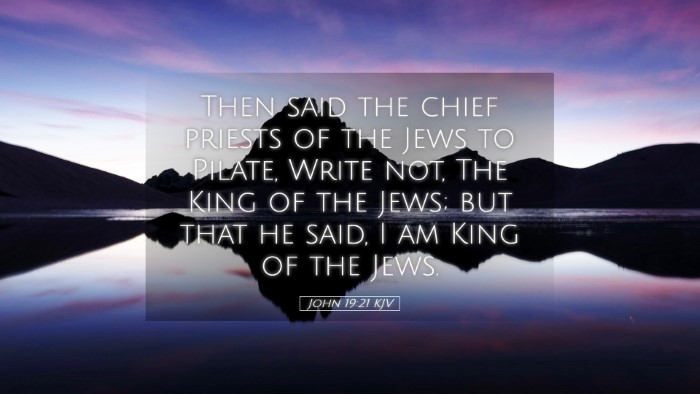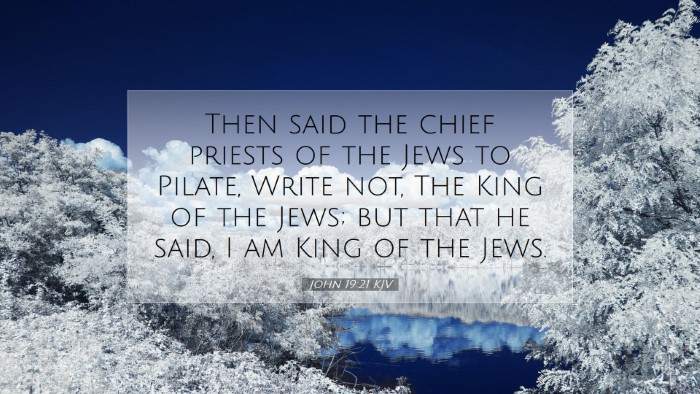Commentary on John 19:21
Scripture: "Therefore said the chief priests of the Jews to Pilate, Write not, The King of the Jews; but that he said, I am King of the Jews." (John 19:21)
Introduction
In John 19:21, we witness a significant moment in the trial and crucifixion of Jesus Christ. The chief priests of the Jews request Pontius Pilate to alter the inscription on the cross, indicating their extreme opposition to Jesus' claim of kingship. This passage is packed with theological and historical implications that necessitate a comprehensive exploration through the lenses of respected biblical commentators.
Historical Context
The context of this verse is crucial for understanding its full meaning. The Roman governor Pontius Pilate is presiding over the trial and, under pressure from the Jewish leaders, has reluctantly agreed to their demands for execution. The social and political backdrop of this scenario illustrates the tension between Roman authority and Jewish leadership.
Matthew Henry's Perspective
Henry emphasizes the pride and insecurity of the Jewish leaders when faced with the claims of Jesus. In his commentary, he notes that the leaders wanted to communicate to Pilate that they did not accept Jesus’ claim to be King (Henry). This desire to reshape the narrative surrounding Jesus reflects their fear of losing influence over the people. By insisting that Pilate change the inscription, they were attempting to undermine Jesus’ authority and reinforce their own.
Albert Barnes' Insight
Barnes provides a detailed explanation of the political motivations behind the request of the chief priests. He suggests that they aimed to distance themselves from the idea that Jesus could be a legitimate king in any sense that threatened their status (Barnes). This request reveals their desire to maintain a semblance of control over the narrative and the people, who were swaying towards the belief in Jesus as the Messiah.
Adam Clarke's Analysis
Clarke offers a theological examination of the verse. He highlights the irony of the situation, where the inscription on the cross, regardless of the adjustments made, ultimately serves to proclaim the truth of who Jesus is (Clarke). He suggests that the more the Jewish leaders attempted to suppress the truth, the more it was publicly affirmed. This paradox underlines a key theme in John’s gospel: God’s sovereignty in the face of human opposition.
Theological Implications
John 19:21 raises essential theological questions about authority, kingship, and the nature of Jesus’ mission. The response of the chief priests illustrates a fundamental conflict between earthly and divine authority. The leaders' denial of Jesus’ kingship reveals their misunderstanding of God’s kingdom, which operates counter to worldly power structures.
Divine Sovereignty
The insistence on changing the inscription illustrates humanity’s attempts to thwart God’s plans. Despite their efforts, God’s purpose is fulfilled through Christ’s crucifixion, which becomes a means of salvation rather than defeat. This leads to the ultimate acknowledgment of Jesus as the true King in the resurrection and the establishment of His kingdom.
Jesus as King
Throughout the Gospel of John, Jesus is portrayed as the true King, one whose authority is not derived from earthly power but from divine calling. The crucifixion scene, especially this verse, ultimately serves to exalt Christ, demonstrating that His kingship will not be limited by any attempts to deny it.
Applications for Today
For pastors, theologians, and students, this passage provides crucial insights into the nature of authority and the spiritual warfare that exists within human hearts concerning the acceptance of Jesus’ lordship.
- Understanding Authority: Recognizing Jesus as King in our lives means that we surrender to His authority, despite the chaotic world around us, similar to how the early church faced persecution for their faith.
- Response to Opposition: Like the Jewish leaders, we also face temptations to twist or deny truth for the sake of personal interests. This passage challenges us to stand firm in the truth of Christ’s identity.
- Acknowledging God’s Plan: Even in our moments of struggle or misunderstanding, we can trust in God’s overarching plan that works through difficult circumstances to achieve His purposes in our lives.
Conclusion
John 19:21, while a brief statement, offers a profound glimpse into the conflict between earthly authority and divine truth. Engaging with the insights of Matthew Henry, Albert Barnes, and Adam Clarke allows deeper contemplation of the implications of Jesus’ kingship and the responses of those who confront it. The passage continues to challenge believers to recognize and proclaim the truth of Christ in a world that often seeks to suppress it.


